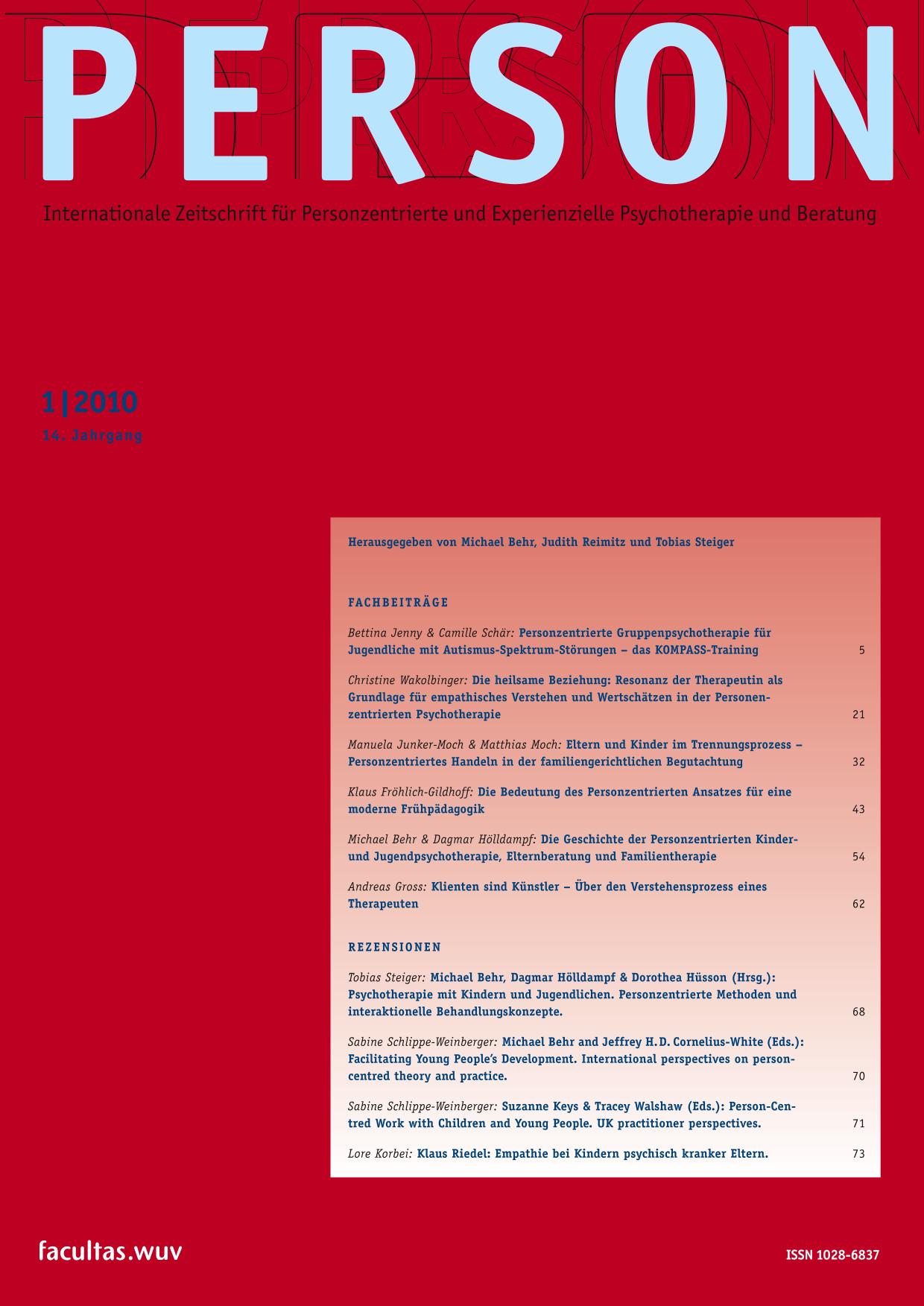Eltern und Kinder im Trennungsprozess – Personzentriertes Handeln in der familiengerichtlichen Begutachtung
Main Article Content
Article Sidebar
Abstract
Parents and Children leading up to separation — Person-centered support within legal expertise. Married Couples with children, who are leading up to a separation, wish to separate or are already separated or divorced, are confronted with the problem of with whom their children, in the future, should live. In difficult cases the custody of the children and the right to device on their place of abode has to be legally decided, whereby, in highly problematic and questionable cases a lawyer often has to obtain a psychological expert’s opinion before making a decision. In such a case the family is faced with an expert, who, from a professional perspective, should come to an arrangement according to the well-being of the child. A person-centered exchange with those concerned helps them to communicate in an unrestrained manner. An appreciative, acceptive and empathic basic attitude towards those concerned, on the part of the psychological expert, as well as congruence in a dialogue, in a collective discourse and in the examination of the child, help to encourage a change in the family communication-structure. In the ideal situation this supports the appraisal process to the effect that acceptable advice, on a long-term basis, can be put into action. In any case the self-explorative and symbolic process of those concerned will be initiated.
How to Cite
Downloads
Article Details
client-centered psychotherapy, divorce, appraisal process, well-being of children, custody, family law, psychological expert

